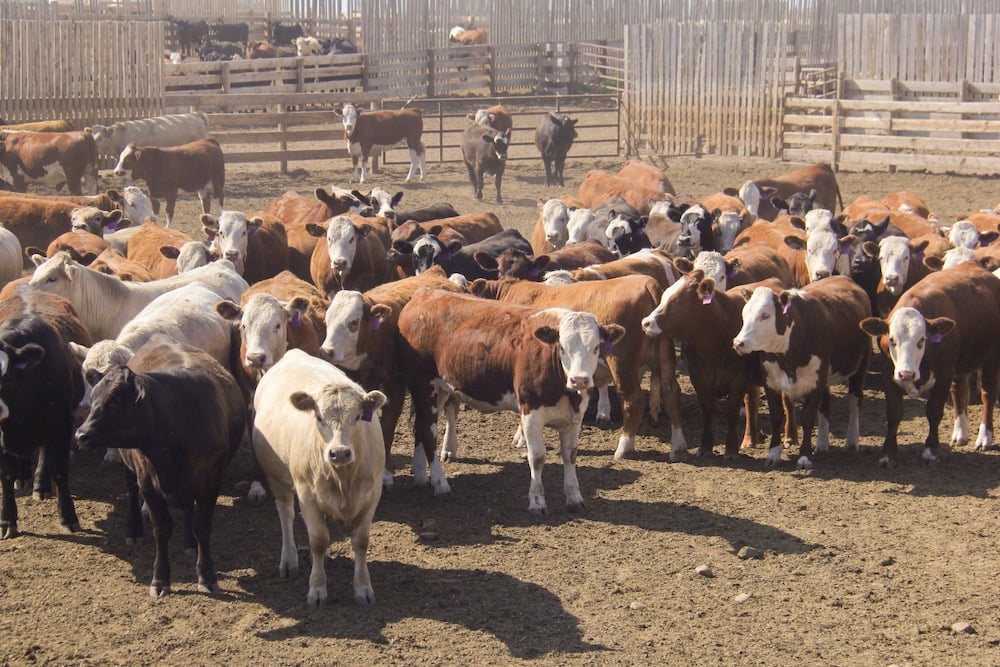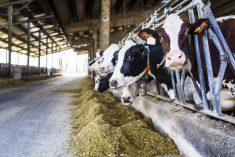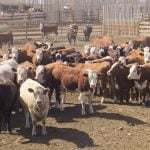A dispute settlement panel called by New Zealand under the Trans-Pacific Partnership (CPTPP) trade pact has ruled Canada’s limits on dairy market access cramp its agreed-upon obligations.
But despite the panel’s findings in New Zealand’s favour, Canada is also framing the panel’s ruling as a win — as it also generally upholds Canada’s ability to set criteria for dairy quota allocations.
In a ruling dated Tuesday, a three-member CPTPP panel found Canada’s policy of reserving priority access to its 16 dairy tariff rate quotas (TRQs) is “inconsistent” with its obligations under the 2018 trade pact — and that the pooling system Canada has set up in its allocation mechanism “operates to limit the opportunity for otherwise eligible applicants to use the TRQs fully.”
Read Also

U.S. livestock: Feeder cattle rise to new highs on tight supply, strong cash prices
Chicago | Reuters – Chicago Mercantile Exchange feeder cattle futures rallied on Thursday to a record high on strong cash…
Canada in 2020 and 2021 issued 16 “notices to importers” that carve up its overall available TRQs for 16 separate dairy product categories, by reserving 80-85 per cent of them for processors, zero to 20 per cent for further-processors, and zero to 15 per cent for distributors.
Arguing that a system reserving the “vast majority” of available TRQ allocations for processors fell short of Canada’s CPTPP commitments, New Zealand had called for consultations with Canada under the CPTPP in May last year, then asked for a dispute settlement panel in November. A dispute hearing was then held in June in Ottawa.
New Zealand, which contended Canada was “impermissibly limiting access to TRQ quota to its domestic dairy processors,” notes its case marks the first dispute to be taken by any party under the CPTPP.
In its ruling, the panel emphasized it’s not requiring Canada or other CPTPP parties make sure each available TRQ quantity be fully filled each year — but “the opportunity to fill them must not be undermined by an overly compartmentalized and complicated system as is the case with Canada’s current allocation mechanism.”
On the other hand, the panel’s 60-page ruling found Canada did not introduce “new limits or eligibility requirements” on its dairy TRQs, and that its notices to importers, by setting up “additional criteria for eligible applicants” for a quota allocation, are within the discretion allowed to countries that use an allocation mechanism.
But the panel also emphasized “it is not suggesting that Canada, or any party using a TRQ allocation mechanism, has unfettered discretion to adopt any manner of eligibility criteria that it wants.”
‘Have to change’
CPTPP rules now give Canada “a reasonable period of time to change its TRQ administration to comply with the panel decision,” New Zealand officials said Tuesday.
“Canada was not living up to its commitments under CPTPP, by effectively blocking access for our dairy industry to upscale its exports. That will now have to change,” New Zealand Trade Minister Damien O’Connor said in a separate statement.
The panel ruling, he said, will give New Zealand’s exporters the “confidence and certainty that the mechanisms in place will ensure they receive the market access that all members agreed to.”
New Zealand, he said, “look(s) forward to our dairy exporters being able to properly utilize the hard-won market access we negotiated through CPTPP and we hope Canadian customers will welcome more consumer choice.”
Dairy Farmers of Canada president David Wiens, in a separate statement Wednesday, said the organization is “disappointed” with the dispute panel’s findings. Out of the six challenged elements of Canada’s system, two were ruled to be inconsistent with the CPTPP while New Zealand’s other four claims were ruled as “unfounded,” he said.
DFC, he said, now calls on Ottawa to run a “thorough review of the measures the government of New Zealand has put in place to support its dairy sector to ensure that they are consistent with its international trade obligations.”
In a separate statement Tuesday, Canada’s Trade Minister Mary Ng and Agriculture Minister Lawrence MacAulay said the panel “has made a significant finding by recognizing Canada’s discretion to set TRQ allocation policies, including determining who is eligible to obtain an allocation.”
Canada, the ministers said, “will not negotiate these allocations with countries who seek to weaken Canada’s supply management system.”
The panel’s findings on Canada’s use of pools also “will not undermine Canada’s supply management system,” they added.
Canada’s system of reserving TRQs for imports by domestic dairy processors has been a target of two separate disputes launched by the United States under the Canada-U.S.-Mexico Agreement (CUSMA). The U.S. is not a party to the CPTPP.
Canada’s supply management systems on dairy, poultry and eggs are meant to ensure regulated supplies of those perishable goods, by regulating the levels of domestic production; regulating pricing according to end-use; and managing imports through the use of TRQs and an otherwise high tariff wall.
Martin Harvey, New Zealand’s High Commissioner to Canada, said in a separate statement the outcome of this dispute “would not take away from the excellent relationship” between the two countries.
“It is a good example of how dispute settlement chapters in free trade agreements are meant to work. It’s an outcome that supports our shared commitment to a rules-based international trading system, and a good day for CPTPP.” — Glacier FarmMedia Network

















